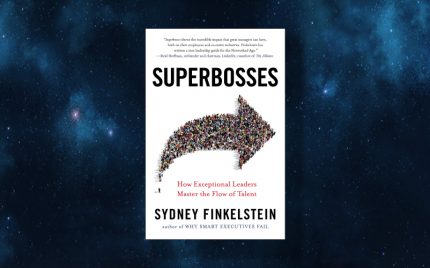
Congratulation On Your Milestones. And What’S Next?
6 yearsago 0 Comments 2.7k Views
For many leaders, the meaning of work is often vague. Usually, there will be a gap created between what a leader expects when they achieve milestones and a sense of reality when they achieve them. Because what a leader thinks is a meaningful purpose is often simply a pursuit of success. Therefore, once they achieve this (usually very quickly if the leader is really good), they will feel awkward and a little bewildered and ask themselves the question: “Is that so?”.

A leader once shared in a global survey program: “I was promoted a year faster than my colleagues. It was a goal that I had planned before and I had to work hard to achieve it. Before reaching this milestone, I was filled with thoughts about what it meant to me and how I would feel when I achieved it. But honestly, I don’t feel anything. One day I just woke up and asked myself, “What’s next?”
This leader is certainly not alone in having these thoughts when achieving the achievements he longs for. But more importantly, these thoughts help highlight two important things. First, we often confuse the feeling of pursuing our success with an expectation that is unlikely to make sense for our lives. And second, the achievements that we think are so big will makes us forget the experiences or the small daily achievements we have, but sometimes, these things give us the true meaning of work. If a leader wants to go further in his career and at the same time find work meaning through his experiences, consider the following strategies to eliminate the pursuit of inappropriate goals with your life.
Have big goals and small goals go hand in hand
When considering what their achievements are, leaders should consider two angles. The point of investment is what affects your career orientation, what is really the most important – or the big goal. In that way, are smaller goals that link specifically to the experiences that leaders feel mean to them in some way.
Because of many reasons, leaders are more focused on how to define a big goal, which is not always useful for them. And although this big question may sound great, it may lead the leader to experience unnecessary intangible pressures. “What makes me wake up and get out of bed every morning? What do I want to pursue my whole life?” – And has the leader ever wondered WHY?
When answering such difficult-to-define questions, consider smaller goals that help relieve pressure and push leaders to what is actually more significant, though sometimes smaller. There is a goal that includes a lot of things, but above all, it is the leader’s choice. Those are the choices that help leaders have a better quality of life experience, not just at a certain moment – or a milestone that many people think.

What is the leader’s big goals & small goals?
Don’t find the meaning of life through achievements
When we define “meaning” or “purpose” into something simpler, a “thing” we pursue, then the “meanings” and “goals” gradually become farther away. beyond the reach of the leader. We start rushing to turn to achieve these “things”, though it’s not necessarily true with the “meaning” we expect. Therefore, the achievements that we have achieved inadvertently become something too strange, completely different from the daily experiences we have – sometimes we forget them because we are just engrossed in chasing that “thing”.
To separate these two factors when defining your life, try the following experiment. Draw a table on the paper with the column headings “Achievements” (for example, being promoted early), the next column is “Meaningful experiences” (eg, challenging yourself far beyond expectations everybody’s expectations). Start listing your achievements, milestones and tangible things you have achieved in both short and long term in the “Achievement” column. When done, fill in what you feel (as the meaning) corresponds to those achievements in the other column. The leader will see that there are experiences that he wants to achieve, sometimes without correlating the achievements he wants to achieve. This means: The leader can completely compromise with himself by aiming at achieving earlier, or simply creating meaningful experiences with his life sooner.
Answer the question: Who am I?

Answer the question: Who am I?
Along with finding your own value, your choices about what you want to achieve, and how much of their impact on your life will be tools to help leaders find out the goal of your life. No one can find it, except the leader himself.
However, the challenge here is that people often learn nature and subtly simulate the behaviors that occur around them. Culture is repetitive behavior or habit and gradually learned, shared and transmitted between one person and another, between generation to generation. So that is to say, what we express is also what everyone is expressing, and we are contributing to shaping them. Since then the definition of the purpose of life will sometimes be affected by what does not belong to us. However, the feeling of finding your life’s goal is especially important so that we cannot learn from others. This is particularly important for the case of emerging or transition leaders. In these cases, identifying one’s personal and leadership brand can become an exercise in finding similarities between the two generations of leaders who are trying to learn admirable qualities of the others. Instead, this should be a treat to find the attributes, skills, and added-value abilities that only the leader has to form the leader today.
To find out, ask yourself the question: What am I doing for the business and what values am I giving to the group/organization that I am involved with, and what gives me the feeling the most meaningful, satisfying and purposeful? Answering this question will help leaders find the intersection between themselves and the success of the business.
Summary
When pursuing one of these three strategies simultaneously – start by finding meaning, separating the search for meaning from life, and answering “who am I?”? – There will be certain changes in yourself. This change allows leaders to find purpose and meaningful experience throughout their journey to the company, career, not only on the way.
——————–
How do you think about this article? Please share it with us via the comment section below.
According to Strategy+Business
PRIMUS – FIRST CLASS JOBS ONLY




